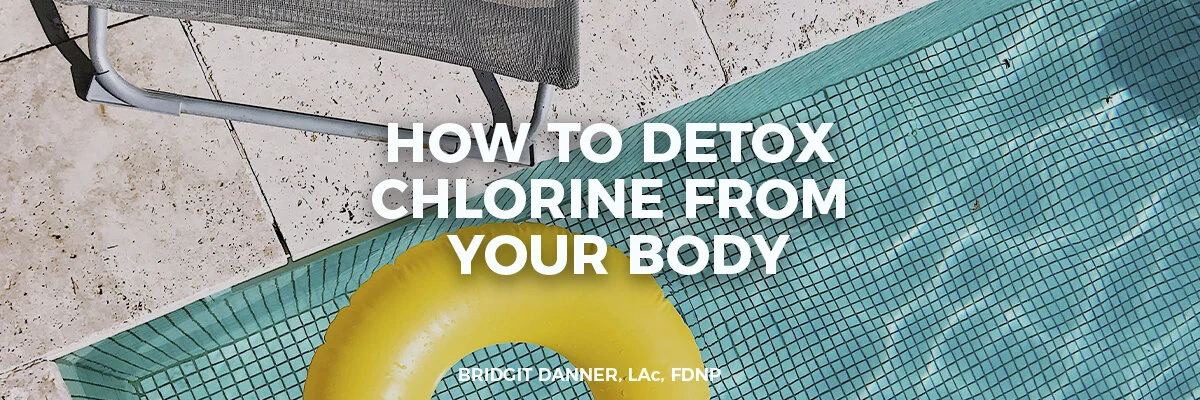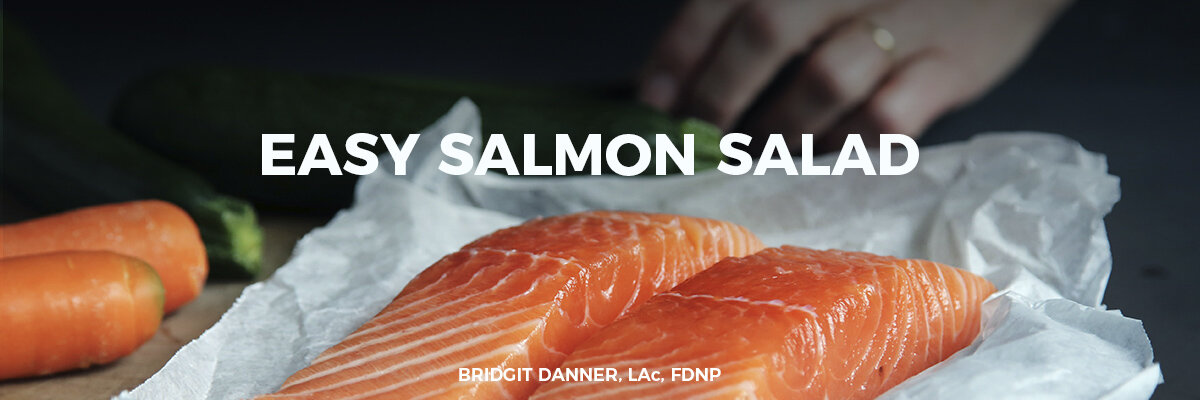In Chinese medicine, every organ system has a corresponding emotion, and if that emotion is at an extreme, the organ function can be affected.
In today’s article, I’m going to use the concept of ‘overthinking damage digestion’ (aka the spleen organ system, as it was first translated) to describe some of the effects of worry and ‘overthinking’ on digestive function.
Example of the Digestion/Stress Connection
Have you had a specific instance where your digestion was suddenly off?
For me, on the day of my board exams in Chinese herbal medicine, I was in and out of the bathroom. And sometimes when I have a sudden shock I also am sent straight to the bathroom.
I’ve had two clients whose healthy guts turned suddenly very dysregulated from the death of a loved one.
But what about when you are low-grade worrying or ‘overthinking’ all the time? What are the effects on your digestive system?
‘Overthinking,’ which is a term we don’t use much these days, could be translated to rumination, obsession, or just plain being in your head and your thoughts too much.
All the Ways Digestion Can Go Sideways
In this day and age, there are lots of things that can affect digestion. I think that’s why we see digestive problems at such epic proportions.
Digestive diseases account for over 100 million ambulatory care visits annually in the U.S. A 2018 survey found that 61% of over 70,000 surveyed complained of a digestive symptom within the past week. (source)
Things we don’t even consider, like that we have electricity and refrigerators, so we can stay up late in a bright room, staring at a bright screen while being emotionally stimulated with a scary movie or video games while eating a snack…these are things our digestive system wasn’t originally set up to handle.
And then there are pesticides and preservatives, microwaves and plastic packaging… our food production, processing, transportation and handling have led us farther away from clean, whole foods.
We also have antibiotics in use all around us, and a greater incidence of gut dysbiosis (bacterial imbalance) and even potentially missing whole strains of important bacteria in our microbiome.
Other factors include parasites, brain injuries, mold, changing hormones, aging, fast eating, food sensitivities and more.
I wanted to at least touch on all that before I talk about stress and digestion, so you know there are myriad reasons for your digestion to be off. That’s why it may take a multi-pronged, time-consuming approach before you get your own digestion under control.
How Stress Affects Digestion
There is a major connection between the gut and the brain--sometimes the gut is referred to as our second brain.
I was surprised to learn in a 2022 review in the International Journal of Molecular Sciences that depression is predicted to be the number one health concern by 2030.
Poor gut health correlates with poor mood, and vice versa. Here are few highlights from that review:
“Chronic stressors appeared to have negative effects on both brain and gut health, while supplementation with prebiotics and/or probiotics show promise in alleviating depression pathophysiology.”
“Recently, compelling evidence is building for the involvement of the complex, bidirectional communication axis between the gastrointestinal tract and the central nervous system (CNS) which serves to mediate mood states, in turn affecting intestinal motility, secretion and immune function.”
“From the brain to the gut, stress affects multiple pathways, beginning with the perception of stress by the frontal cortex of the brain, leading to activation of the major stress response pathways.”
“From the gut to the brain, compromised intestinal barrier integrity brought about by stress allows enteric bacteria and their associated ligands to enter the circulation, leading to systemic inflammation with further consequences for brain health.”
“Observational and animal studies have shown diets high in fibre and nutrients, but low in refined carbohydrates and saturated fat, such as the Mediterranean or Japanese diets, have positive effects on mental health and may prevent the onset of depression.” (source)
And here’s one more tidbit from the journal Current Opinion in Behavioral Sciences:
“Both chronic and acute stressors can shift the gut bacteria in multiple regions and habitats — both the inside (lumen) and border (mucosal lining) of the gut. Rodent research demonstrates that stress can rapidly affect the gut bacteria’s composition. Furthermore, an in vitro work shows that catecholamines can elevate certain bacterial levels 10 000-fold and intensify their infectiousness in 14 hours. These pathogenic species may crowd out beneficial species.” (source)
What to Do About It
Luckily there are lots of things you can do to positively affect digestion. The many choices and the not–usually-instant results can be frustrating though. I encourage you to be patient as you go through your gut healing journey.
It took me many years to get my own digestion under control. First I lived out of the country in a developing nation for a whole year and I definitely got imbalanced there. I got constipated for a time and then developed loose stools.
Eventually I took out gluten and dairy and that helped a lot, but around the same time I was exposed to mold for a period of about 8 years and things got worse. I ate a pristine home-cooked diet which did help a ton.
After my mold was finally diagnosed, I went through a few years of restoring my gut, with testing, parasite cleansing, H. Pylori treatment, candida treatment, restoring my gut mucosa, adding beneficial bacteria and various special diets.
It took a long time and a lot of testing, education and experimentation. I share to say that it often does take a whole process, and also to say that I have gotten much better at understanding the gut and making the process shorter for my clients.
My ultimate goal with clients is that they can eat as much as is within reason--having desserts and eating at restaurants, etc. But you may have that some foods are never a good fit for you, or you can only have them occasionally. You may find that certain supplements or habits are needed to keep you digesting at your best.
That’s ok.
We don’t need to feel we need to eat and act like ‘everyone else.’ First of all there’s no such thing, and secondly it’s your responsibility to take care of your body in a way that makes it function best… if that’s your goal.
We offer testing, consultations, and supplements in our shop to help support efficient digestive recovery.
As a quote above mentioned, nutrient-dense, fiber-rich foods are helpful, as are prebiotics and probiotics.
That’s why with or without testing I usually recommend clients to start on Megasporebiotic (probiotic), then Mega Pre (fiber), then MegaMucosa (support gut lining, benefits constipation) and/or Mega IgG 2000 (helps infections and diarrhea).
The Overthinking Piece
I am a Virgo and definitely prone to overthinking. I think I learned the most about going through a traumatic divorce. While in the soup of it, I was just worried and upset all the time.
As I slowly crawled out of it, I noticed how it felt to be peaceful vs. stressed, and what brought me into stress or into peace.
A lot of it is about avoiding overthinking, and as a foundation that means keeping your life a little simpler and practicing mindfulness to keep you in the present moment.
This foundation sets up peace as a base, so when you go off the rails because of a rude person, a future worry or a painful memory, you can acknowledge it, feel it and process it, but you can know that holding on to it ruins your peace, and that doesn’t feel good.
To make that peaceful foundation, here are some ideas:
Sit outside and take in the sights and sounds.
Make a hot cup of tea and drink it quietly.
Snuggle on your couch and focus on noticing your environment and any tension in your body.
Use Insight Timer or a similar app to set a timer on this period. I often use a 5 minute timer but end up going over often… but I know asking myself for 5 minutes is do-able. You can start with 3 minutes or even 1 minute if this exercise pushes your buttons! Insight Timer also offers music and guided meditations. Studies show that regular meditation improves gut health. (source)
Take a slow walk.
Do some stretching, foam rolling or go to yoga class.
Silence your phone’s notifications.
Put your phone in another room for a period of time.
Avoid the news, especially if you’re stressed.
Take a pause between activities--don’t rush from one thing to the next.
Leave some blank space in your day and give yourself permission to just enjoy it.
Read a good book or magazine.
Play a game with your kids.
Take time to slowly cook a good meal.
Acupuncture- did you know I’m now seeing acupuncture clients in Phoenix?! CLICK HERE
“Meditation, through its stress-reducing effects, can positively influence gut health by modulating these stress-related changes. It helps to restore the balance of gut bacteria, improving gut barrier function and reducing inflammation.” (source)
Having this peaceful state established can help you not get as wound up. But if you do, here are some strategies to help:
Do a crossbody technique
Use essential oils, as tolerated
Remember that a thought is just a thought, it’s not happening right now but it’s ruining your peace. Can you journal it out, cry it out, and then focus on the present?
Look around and notice where you are. Think about what you want to get done today and what you need right now. Focus on you and what is best for you–maybe it’s time to eat or get in a workout.
As the journal article above noted, the stress response starts with perceived stress, and sometimes we perceive a bigger threat than there actually is in the moment.
Conclusion
Your digestion is affected by how you handle life and the habits you create around meals, stress and supplementation. So if your digestion is not where you want it to be, dig in and work on it. You really can improve your digestion, and it’s so worth it to not be daily with daily symptoms!
Learn more
Grab my in-depth digestion e-book for free here. The better you understand your gut, the better you can support it.
Bridgit Danner, LAc, FDNP, is trained in functional health coaching and the author of The Ultimate Guide to Toxic Mold Recovery, available in Kindle, paperback and Audible on Amazon.
Grab her free guide, Five Key Antioxidants for Detoxification, here, and slay your detox journey!













The thought of a coffee enema might leave you in shock, but it’s actually a practice that has been used for thousands of years. I’ve seen the correct implementation of coffee enemas truly transform energy, gut health, antioxidant status and more. Learn the right way to do a coffee enema!